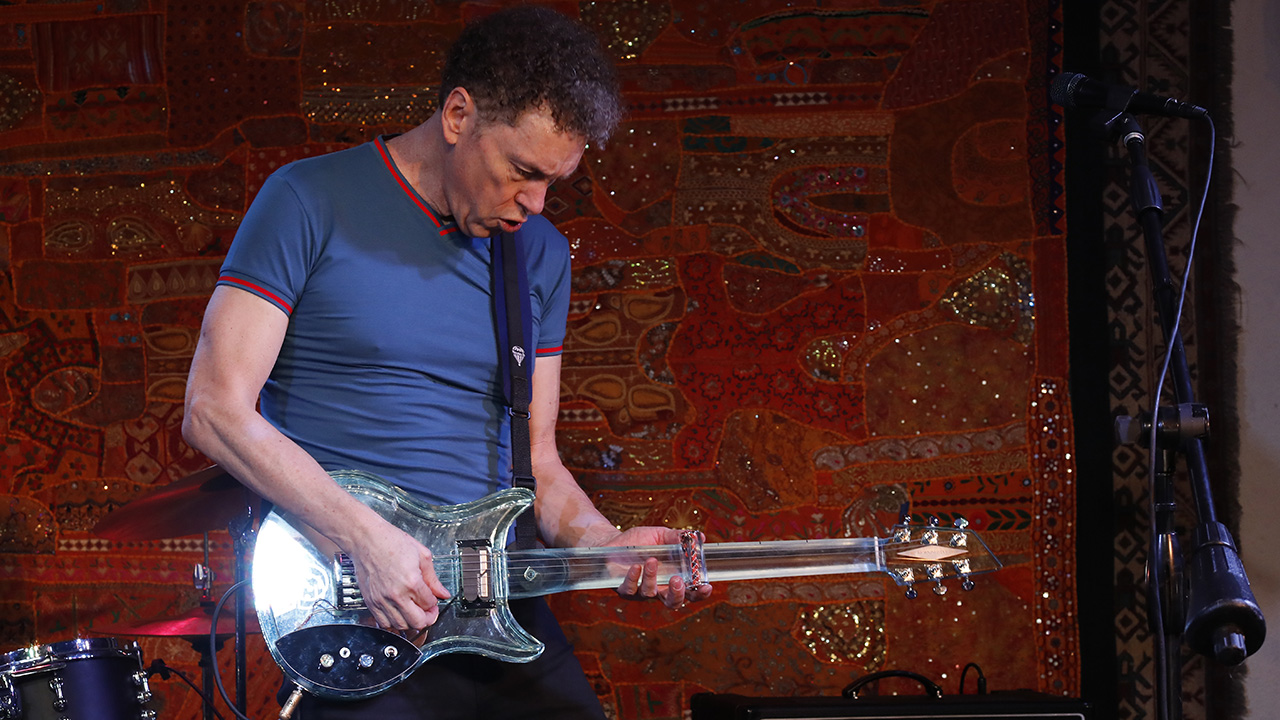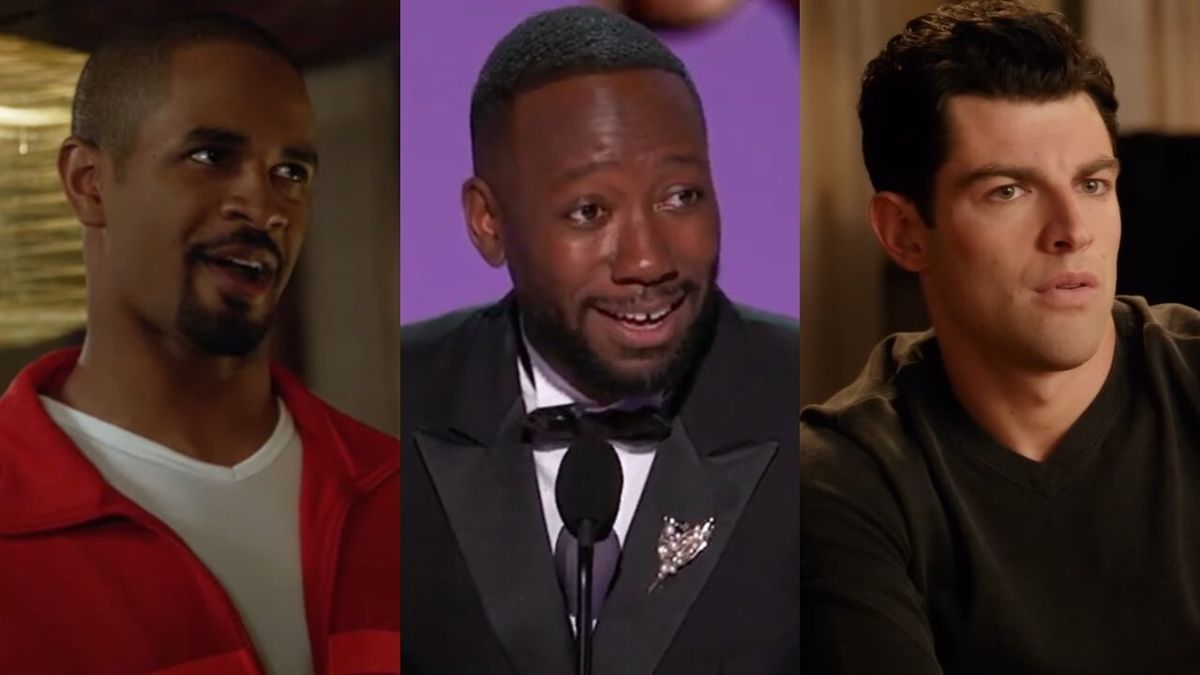Virtuosos come in all shapes and sizes, and brandish all sorts of gear. One example is Ned Evett, whose choice of weapon is as distinct as his playing style. “Fretless glass-necked guitars are complete instruments, like a pedal steel,” he tells .
“They have their own limitations and strengths – and a brutal learning curve.” Surviving that brutality led to Evett’s participation in Joe Satriani’s G4 Experience music camp last year. “I had the honor of showing my fretless guitar style to John McLaughlin, Sting and Dominic Miller backstage,” he says.

“The years of struggling to establish the fretless guitar and my own style of songwriting felt totally worth it. I’m really excited about getting on the road and showing people all the things a fretless guitar can do.” His upcoming album, , is filled with tons of shred, bouts of melody, and nothing but fretless action.
“I often have guitarists pick up one of my rigs, only to have their egos completely shattered, after expecting their fretted skills to instantly translate to it,” he explains. “However, some people have an instant affinity for it and pursue it further – picked one up at G4 and immediately sounded musical.” Doubling as an educator, Evett stays tuned in to guitar developments; so he has a perspective to offer on most subjects; say, for example, the question of whether solos have gone wrong in recent years.
“I don’t think a , as a musical statement, is any more overblown than a lead vocal,” he says. “They can be an important part of a great song. Plus, as they are played by human beings instead of AI, I’m a huge fan!” “I was hired to teach a fretless guitar class at Joe Satriani's Las Vegas G4 Experience camp in 2023, spending a week alongside Satch, Steve Lukather, Steve Morse, Cory Wong, Nili Brosh and Eric Gales.
“I got super-inspired and started writing the new album using fretless riffs I created for the G4 camp. I wrote and demoed 20 songs along with lyrical genius Cherian Jubilee – who helped me develop my fretless glass fingerboards.” “‘Swirl’ is a great way to describe that process! I visualized big songs that fans of the guitar could enjoy at an outdoor festival; songs that are simple-sounding but also complex, like .
“I used the Dunlop Clamp/Slider gizmo I created on every song, both for the rhythm-comping parts and the solos. Dunlop sent me 10 slides, and I used a different type for each tune.” “I saw Adrian Belew playing fretless guitar with King Crimson on MTV when I was a kid, and I got hooked.
He produced my album in 2012, which was a thrill. After switching exclusively to fretless, I began wearing out my wooden fingerboards, and the glass fingerboards solved that problem. My first electric fretless with a glass fingerboard was a Fender Bullet, modified by Rob Renick.
” “Fretless guitar requires constant on-the-fly tuning of chords and melodies, so the ear training and muscle memory involved are very specific. I’ve played fretless exclusively for 30 years. I love the way it sounds when mixed with even-tempered instruments such as keyboards – the microtones really jump out!” “Every guitar I own and play is fretless with a glass fingerboard.
However, I never tire of listening to people playing guitar well, fretted or fretless. “First, I was sponsored by Fernandes; then Peavey; and most recently, Ibanez, who made my Null Guitar. They each gave me production models, which I modified with glass fingerboards.
A cool thing happened last year with Morningstar Guitars, who custom-built me a Solid Glass Fretless model. I’m currently using 11 guitars in the studio and on tour.” “I ran a company in the 2000s, selling custom glass fingerboard guitars.
In 2006, I modified a for John Frusciante. But I ultimately felt my place in the universe was playing music, not running a company; so I closed it down in 2010.” “Riffs usually happen when I’m warming up or tuning up.
I record them on my phone, then go back to them when I’m in songwriting mode. I play in open E major tuning [E B E G# B E] exclusively; so often, I’m exploring the strong root-to-fifth relationship between the low E and B strings. Playing the bottom three open strings gives you a power chord.
” “My solos are emotional vehicles to help tell the story of the song. My favorite solo on this album is on the title track, . It’s about how weird it is to truly be doing your own thing and the cost of doing that – and for me, the twisted lines of the fretless guitar can truly capture that feeling.
“When I solo on the fretless, the overtones of the major chord ring out beneath the lead lines sympathetically, and I love its harmonic sound. You don’t bend strings across the fingerboard on a fretless, but up and down the string like a sarod or slide player. “I play fingerstyle a good deal of the time, like Mark Knopfler, who has profoundly influenced me as a songwriter and musician.
” “The first issue is treble string sustain. I pioneered using glass fingerboards, sustainer pickups, left-hand nail slides, and my Dunlop Clamp Slider to increase sustain “I developed a standardized system of chords based on the Nashville system (I, II, III, IV, etc.).
I’m able to produce rich, sparkling chords in every key using the system – which is crucial as I’m a recording, working singer-songwriter. Plus, onstage, I never have to re-tune using the system.” “I proudly use Vox – my passion for the ‘crystalline dirt’ goes back to my love of Brian May of Queen and The Edge of U2.
was recorded with a Vox AC15 and a Vox MV50 for a direct line. I used an SM7 mic into an N-Sonic preamp for the close mic on the AC15 cab. I love the amp reverb on the AC15.
” “I don’t use a ton; I often use a fly rig with just the basics. I use the MXR Joshua Echo, Paul Reed Smith Mary Cries Compressor, Nobels ODR Mini Overdrive, Mooer Tremolo, and an Electro-Harmonix Pitch Fork for the Octaver. I have the Nobels placed after my echo pedal, which gives it a dynamic breaking-up type sound even at a low volume.
” “Show up prepared and take risks with your music, not your health, regarding substance abuse. Setting yourself apart can be a brutal journey – sometimes, opportunities will go to players who play it much safer with their artistry. But nobody should be criticized for having a guitar in their hand and getting work.
”.



















